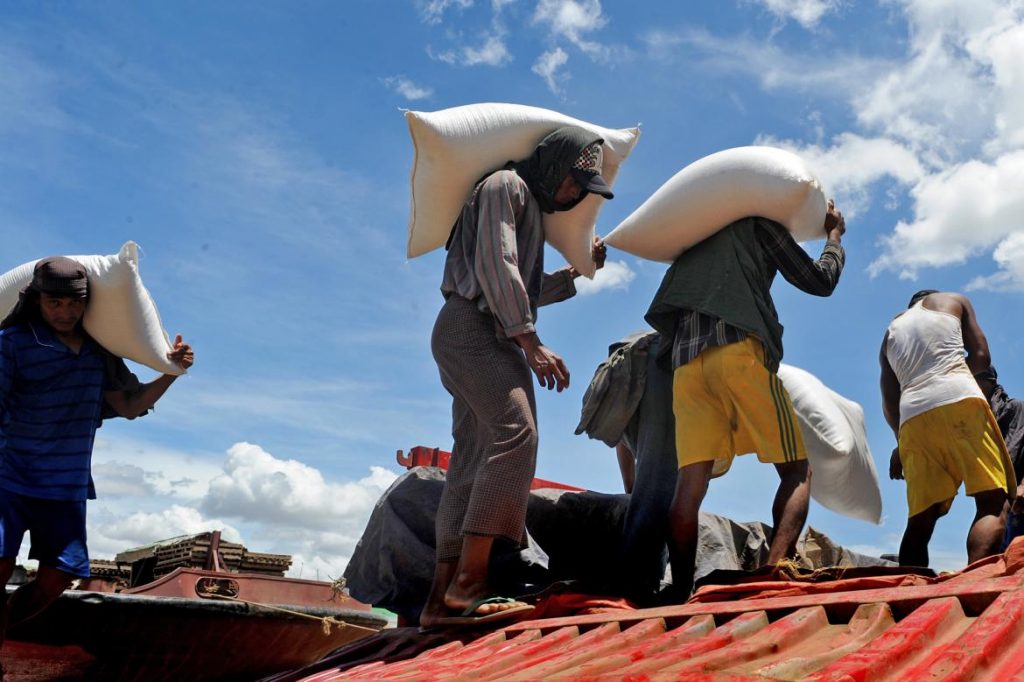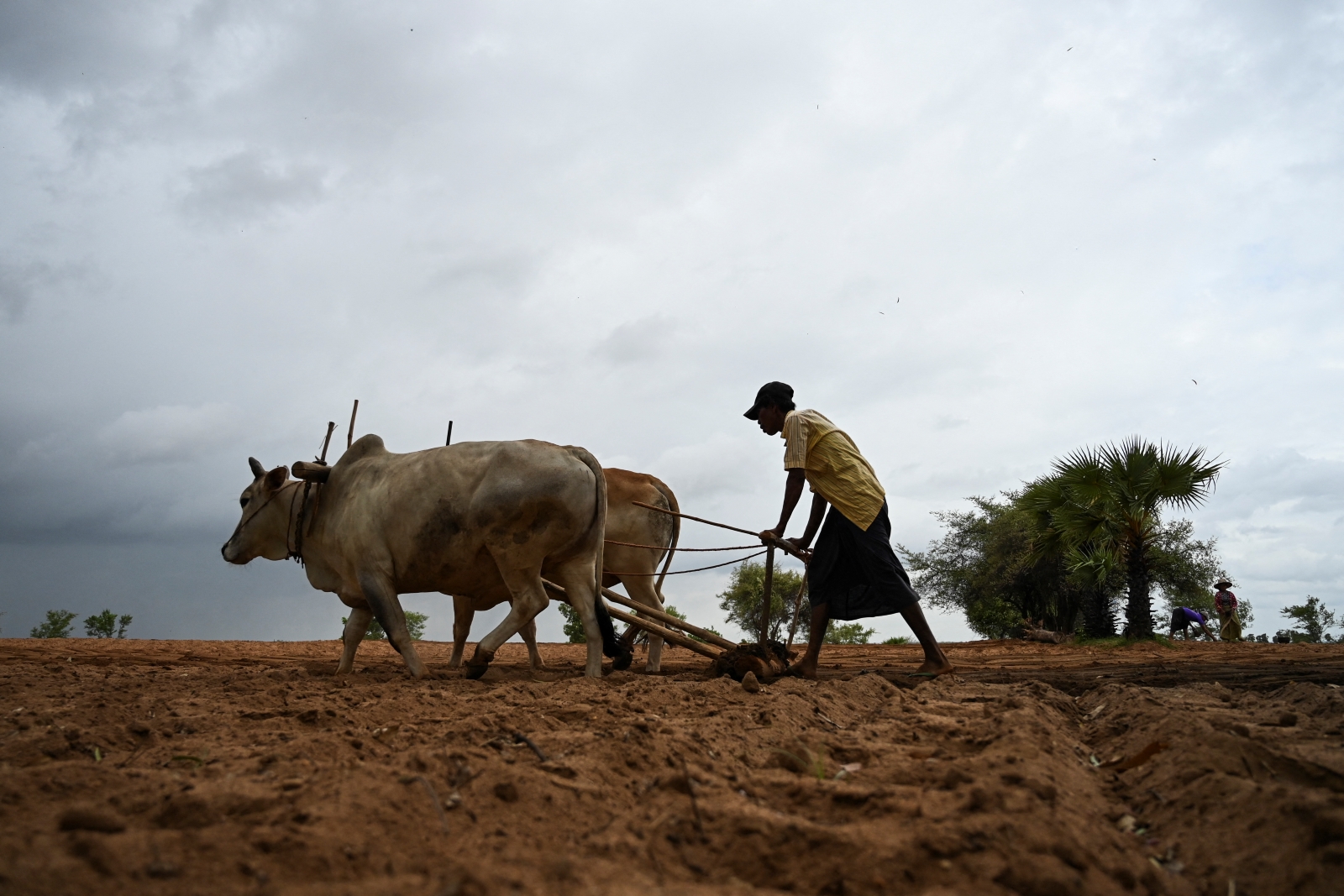The much-anticipated release of the government’s economic policy has been a huge disappointment for those who expected detailed prescriptions for national development.
By KYAW PHONE KYAW | FRONTIER
FOUR months after entering office, the government has released its much-anticipated economic policy: a three-page document listing 12 general points that has attracted criticism because of its lack of detail.
“I admit the policy took longer than needed,” Minister for National Planning and Finance U Kyaw Win said at the policy’s launch in Nay Pyi Taw on July 29. The delay was because of the need to consider the policy “again and again”, he said.
The document said the government’s economic policy objectives included contributing to “national reconciliation and a federal democratic union” and providing opportunities for the equal development of states and regions.
It confirms the government’s commitment to a “market policy system” and to promoting a level playing field by ending monopolies, and promises to cut red tape and encourage job creation, partly through support for small and medium enterprises.
Support more independent journalism like this. Sign up to be a Frontier member.
The policy also outlines broad plans to reform the financial sector and state-owned enterprises, expand access to credit, encourage foreign investment, develop infrastructure and strengthen public financial management, including budget transparency.
The policy, which broadly mirrors a draft document leaked to the media last year, came under fire at a question-and-answer session held immediately after it was unveiled by Kyaw Win.
The deputy managing director of Asia Green Development Bank, U Soe Thein, complained that the policy was too general and lacked clarity.
“The policy is very vague; I hope the government can provide more details immediately because it is essential that we know what they are,” said Soe Thein, one of the guests at the launch, from which the media was excluded.
Referring to the proposed reform of state-owned enterprises, Soe Thein said this had been a stated government priority for decades, but had never been implemented. He asked what would happen to the employees of a state-owned factory that was shut down because it was running at a loss. “It’s easier said than done. You can say you’re going to reform, but sometimes it doesn’t work on the ground,” he said.
Kyaw Win acknowledged that more detail was needed, as did State Counsellor and National League for Democracy leader Daw Aung San Suu Kyi, who said at the launch that the document outlined the government’s “general economic policy”.
“We know the importance of investment, energy and infrastructure, so we will issue detailed policy papers,” she said.
U Hantha Myint, a senior NLD official who sits on the recently formed National Economic Co-ordination Committee, said investment and infrastructure polices were being drafted.
“I think the investment policy will come out in two months and the infrastructure policy will follow,” he said.
He said a challenge to drafting economic policy was an absence of reliable data.
“They [the government] have data and statistics but it is difficult to decide which are credible,” he said.
U Myint Soe, chairman of the Myanmar Garment Manufacturers’ Association, said it would be difficult to achieve the equal development of the states and regions because of infrastructure disparities.
“We can’t create the electrical supply and the roads,” he told Frontier in a reference to the private sector, adding that providing infrastructure was the government’s responsibility.
However, Myint Soe welcomed the policy’s emphasis on human resources development and vocational training and the decision to prioritise labour-intensive industries.
“I assume the reference to ‘labour-intensive’ favours our industry,” he said, adding that the garment sector had benefitted from trade privileges granted under the Generalised System of Preferences of the European Union and Japan.
“The government should negotiate with the United States to extend its GSP to our industry. We also need a stable electricity supply.”
Kyaw Win told the launch that the government would provide vocational training for unskilled workers.
“I want to proudly declare that we [the government] get K7.8 billion a month from the five-percent tax on topping up mobile phones and we will use this money in vocational training for human resources development,” he said.
Building capacity in human resources is one of the biggest challenges for economic development in Myanmar, say international financial institutions, such as the Manila-based Asia Development Bank.
“The country has a vacuum in skilled labour and a large group of uneducated youth,” Ms Cyn-Young Park, a senior economist at the ADB, told German broadcaster Deutsche Welle.
Doubts have also been raised over the policy’s advocacy of a business model to enable the agricultural and industrial sectors to develop in balance.
“I don’t know if they can implement the equal development of the agricultural and industrial sectors,” Dr Soe Tun, an executive director of Myanmar Agribusiness Public Corporation, told Frontier.
“From my perspective, what is most needed for the development of the agricultural sector is access to finance,” he said, adding that more support was needed from the government.
The policy also calls for the protection of intellectual property to encourage creativity and innovation in advanced technology. However, a draft Patent Law is languishing in parliament and unlikely to be approved any time soon.
Columnist and writer on economics U Khin Maung Nyo said it was incumbent on a government in power to issue detailed policies.
“It will be interesting to see how the policy is implemented,” he said.







